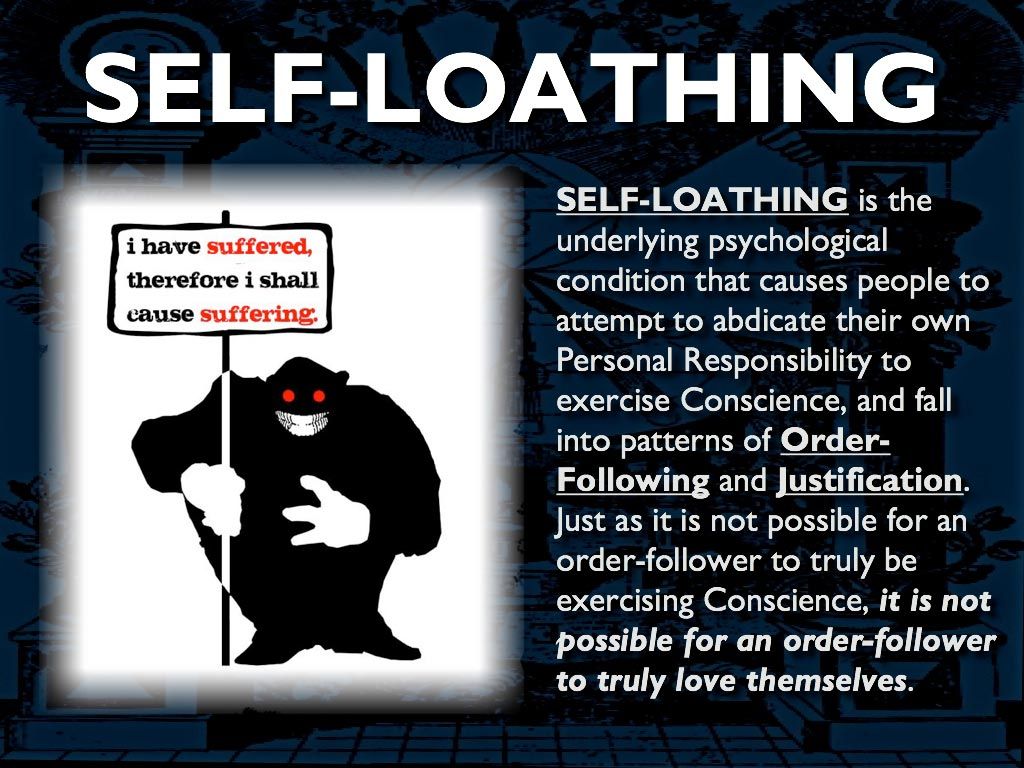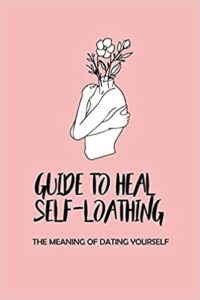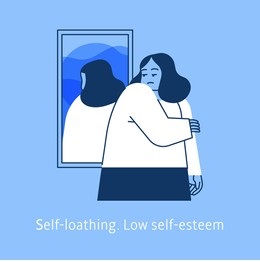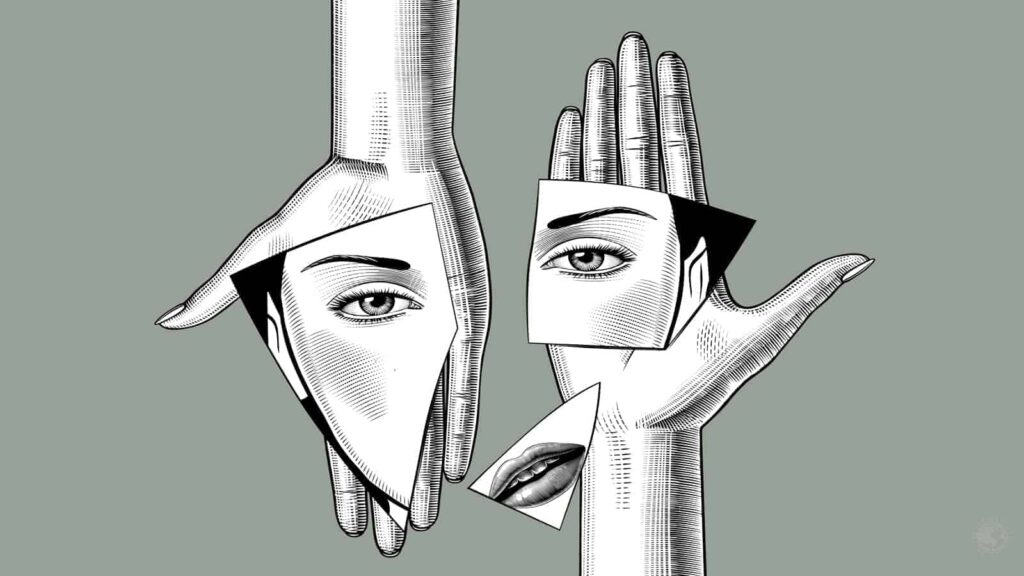Self-loathing is a feeling of intense hatred for oneself. It can be caused by a variety of factors, including low self-esteem, negative body image, and traumatic experiences. Self-loathing can have a significant impact on all aspects of your life, from your relationships to your professional achievements. In this blog post, we will explore the causes and effects of self-loathing, as well as ways to overcome this debilitating condition.
Contents
Understanding Self-loathing

Self-loathing is defined as “intense dislike or hatred of oneself.” It is different from self-esteem, which refers to the opinion you have of yourself.
While someone with low self-esteem may not like themselves very much, they generally do not hate themselves. Self-loathing, on the other hand, is characterized by intense hatred and negativity towards oneself.
NOTE: Self-loathing can be a warning sign that someone is at risk for suicide. People who are suicidal often hate themselves and see no hope for the future. If you are feeling suicidal, it is important to get help right away.
Types of Self-loathing
There are many different types of self-loathing, but some of the most common include:
- Body loathing – hating one’s body or physical appearance
- Emotional loathing – feeling disgusted with oneself emotionally
- Achievement loathing – feeling like a failure or worthless because of personal achievements (or lack thereof)
- Social loathing – feeling isolated and alone due to social anxiety or shyness
Symptoms of Self-loathing
The symptoms of self-loathing can vary depending on the individual, but some common signs include:
- Depression – feeling hopeless, helpless, and/or disconnected from the world
- Poor self-care habits – neglecting personal hygiene, not eating properly, etc.
- Negative self-talk – constantly putting oneself down or having negative thoughts about oneself
- Avoiding social situations – due to feelings of shame, embarrassment, or insecurity
- Self-sabotage – engaging in behaviors that sabotage success or happiness (e.g., procrastination, substance abuse, self-injury)
Causes of Self-loathing
There can be many different causes of self-loathing, but some of the most common include:
Low self-esteem: People with low self-esteem are more likely to hate themselves because they already see themselves in a negative light.
Traumatic experiences: Experiencing trauma (e.g., abuse, neglect, violence) can lead to self-loathing as a way of coping with the pain and trauma.
Negative body image: People who are unhappy with their physical appearance are more likely to self-loathe. This is especially common in women and girls, who face constant pressure to conform to unrealistic standards of beauty.
Risk Factors of Self-loathing
Certain factors may increase your risk of developing self-loathing. Some of these include:
Age: Teenagers and young adults are particularly vulnerable to developing self-loathing.
Gender: Women are more likely to experience body loathing and emotional loathing than men.
Personality Type: People who are perfectionists, overly critical of themselves, or have low self-esteem are more likely to develop self-loathing.
Socioeconomic Status: People from lower socioeconomic backgrounds are more likely to self-loathe due to feelings of inadequacy or worthlessness.
Living With Self-Loathing

The impact of self-loathing can be far-reaching and destructive. It can lead to a wide range of negative consequences in all areas of your life.
Some of the most common impacts include:
Personal Life: People with self-loathing often have difficulty forming close relationships due to feelings of shame, embarrassment, and insecurity. They may also engage in self-destructive behaviors, such as substance abuse or self-injury.
Professional Life: Self-loathing can lead to job dissatisfaction and underachievement at work. It can also make it difficult to advance in your career.
Social Life: People who self-loathe often avoid social situations due to feelings of inadequacy or worthlessness. This can lead to isolation and loneliness.
Overcoming Self-Loathing
If you suffer from self-loathing, it’s important to seek help from a professional. They can help you identify the root causes of your self-loathing and develop a plan to overcome them.
Self-help Tips
In addition, several self-help tips can help overcome self-loathing. These include:
Identifying your triggers: Pay attention to what makes you start feeling bad about yourself. This can help you avoid or cope with these situations in the future.
Challenging negative thoughts: When you have negative thoughts about yourself, take a moment to question them. Are they true? What evidence do you have to support them?
Practicing self-compassion: Be kind to yourself when you make mistakes or fall short of your goals. We all have flaws and we all deserve compassion, including you.
Building healthy coping skills: When you’re feeling down about yourself, find healthy ways to cope with these feelings. This could include exercise, journaling, or talking to a friend.
Self-help Tools
Several self-help tools can help overcome self-loathing. These include:
Books: There are many books available on the topic of self-love and worthiness. Some of our favorites include “The Self-Love Workbook” by Renee Arya and “Radical Acceptance” by Tara Brach.
Podcasts: Several podcasts focus on the topic of self-love and worthiness. Some of our favorites include “The Body Love Podcast” and “The Self-Compassion Podcast”.
Online Courses: There are many online courses available on the topic of self-love and worthiness. Some of our favorites include “The Art of Self-Compassion” by Kristin Neff and “Radical Self-Acceptance” by Tara Brach.
Self-help Techniques
Several self-help techniques can help overcome self-loathing. These include:
Mindfulness: Pay attention to the present moment and your thoughts and feelings without judgment.
Gratitude Journaling: Every day, write down three things you’re grateful for. This can help shift your focus away from negative thoughts and feelings.
Visualization: Imagine yourself in a situation where you feel confident and happy. Practice this visualization regularly to help increase your self-esteem.
Counseling: If self-help techniques aren’t enough, consider counseling. A therapist can provide additional support and guidance as you work to overcome your self-loathing.
Developing Self-worth

After overcoming self-loathing, the next step is to start developing self-worth. Self-love is an ongoing journey that requires work and dedication. But it’s worth it, as it leads to a happier and more fulfilling life. Here we go:
Identifying your values: What is important to you? What do you believe in? When you know your values, it’s easier to live a life that is in alignment with them.
Setting boundaries: Don’t allow others to treat you in a way that is not in line with your values. This includes saying “no” when necessary and setting healthy boundaries in all of your relationships.
Practicing self-care: Make sure to take care of yourself both physically and emotionally. This includes eating a balanced diet, exercising regularly, getting enough sleep, and spending time on activities that make you happy.
Living your life with purpose: Find a way to contribute to the world that is meaningful and fulfilling for you. This could involve volunteering, working on a passion project, or simply spending time with loved ones.
Tips To Silent Inner Critic
Everyone has an “inner critic”, that voice in our head that tells us we’re not good enough. For people with self-loathing, this inner critic can be especially loud and damaging. Here are some tips to help silent your inner critic:
Challenge negative thoughts: When you have a negative thought about yourself, challenge it. Is it true? What evidence do you have to support it?
Talkback to your inner critic: A great way to silence your inner critic is to talk back to it. Tell it that you don’t agree with its negative thoughts and that you are worth more than that.
Write down your positive qualities: This can be a helpful exercise when you’re feeling down about yourself. Write down all of your positive qualities, including things like “kind”, “compassionate”, and “hardworking”.
Focus on your progress, not perfection: It’s important to remember that nobody is perfect. Focus on your progress, not your mistakes. This will help you silence your inner critic and focus on the positive.
Tips To Boost Your Self-esteem
It can be tricky to love yourself when you’ve spent so long tearing yourself down. But with a little effort, it is possible to develop a healthy sense of self-worth. Here are some tips to get you started:
Start with baby steps: Don’t expect to love yourself overnight. Start by accepting yourself for who you are, flaws and all.
Maneuver your thoughts: Just as you challenge the negative thoughts about yourself, also challenge the thoughts that tell you that self-love is impossible or foolish.
Create a mantra: A mantra is a phrase that you repeat to yourself often to boost your self-esteem. Some good mantras to try are “I am worthy”, “I am loved”, and “I am enough”.
Talk positively about yourself: When you talk positively about yourself, it becomes easier to believe it. Start by complimenting yourself in the mirror every day.
Seek validation from others: This is not the most healthy way to boost self-esteem, but it can be helpful in the short term. Seek validation from people who make you feel good about yourself.
Do something nice for yourself: Sometimes the best way to boost your self-esteem is to do something nice for yourself. Buy yourself a new book, take a relaxing bath, or go out for dinner with friends.
NOTE: If you’re struggling with self-loathing, know that you’re not alone. Many people have overcome this struggle and gone on to lead happy, fulfilling lives.
Talking To Professional

If you’re struggling with self-loathing, it might be helpful to talk to a professional. A therapist can help you understand the root of your problem and develop strategies to overcome it.
There are also many support groups for people who struggle with self-loathing. These groups provide a safe space for you to share your thoughts and feelings with others who understand what you’re going through.
Therapies
Many different therapies can help people overcome self-loathing. Some common therapies include:
Cognitive-behavioral therapy (CBT): This therapy focuses on changing negative thought patterns to improve self-esteem.
Dialectical-behavioral therapy (DBT): This therapy helps people develop healthy coping mechanisms for dealing with difficult emotions.
Acceptance and commitment therapy (ACT): This therapy helps people accept themselves for who they are and commit to taking action despite their fears.
Mindfulness-based therapy: This therapy teaches people to be more aware of their thoughts and feelings, and to accept them without judgment.
Case Study
Mary is a 20-year-old college student who has always been hard on herself. She constantly compares herself to others and feels like she’s never good enough. As a result, Mary has developed a lot of self-loathing.
Mary is currently in therapy and working on silencing her inner critic. She is also learning to accept herself for who she is, flaws and all. In the long term, Mary hopes to develop a more positive view of herself and learn to love herself.
Conclusion
Self-loathing can be a damaging and destructive feeling. But with time and effort, it is possible to overcome it. Use the tips and tricks in this article to start developing a healthy sense of self-worth. And if you need additional support, don’t hesitate to reach out to a therapist or counselor. They can provide professional guidance and support as you work to overcome self-loathing and develop a more positive view of yourself.
A Word From Therapy Mantra
Your mental health — Your psychological, emotional, and social well-being — has an impact on every aspect of your life. Positive mental health essentially allows you to effectively deal with life’s everyday challenges.
At TherapyMantra, we have a team of therapists who provide affordable online therapy to assist you with issues such as depression, anxiety, stress, workplace Issues, addiction, relationship, OCD, LGBTQ, and PTSD. You can book a free therapy or download our free Android or iOS app.


